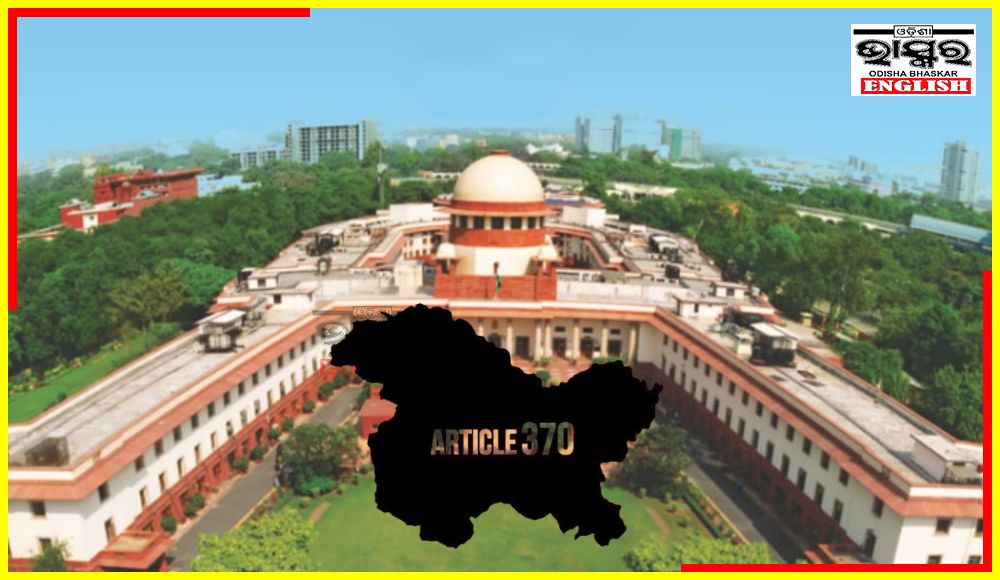New Delhi: The Supreme Court Constitution Bench on Monday termed abrogation of the Article 370 of the Constitution as Constitutionally valid during its pronouncement of the verdict on its nullification.
There were three concurring judgments, one each by CJI DY Chandrachud, Justice SK Kaul and Justice Sanjiv Khanna, said the CJI. Justice Surya Kant and Justice BR Gavai had agreed with the CJI’s verdict.
Jammu and Kashmir does not hold any internal sovereignty after accession to Union of India, ruled the Bench.
The State of Jammu and Kashmir didn’t retain any element of sovereignty when Maharaja Hari Singh signed an Instrument of Accession with India, ruled the SC Constitution Bench.
The CJI said Article 370 was an interim arrangement due to war conditions in the state. The SC ruled that Jammu and Kashmir Constituent Assembly was never intended to be a permanent body and its recommendations were not binding on the President.
When the Constituent Assembly of Jammu and Kashmir ceased to exist, the special conditions for which Article 370 was introduced ceased to exist but Article 370 had continued due to the situation in the state, said the CJI.
On validity of J&K Reorganisation Act, 2019, the CJI said Solicitor General Tushar Mehta had submitted that statehood of J&K will be restored and the status of UT was temporary. In view of the submission made by the SG, we don’t find it necessary to determine whether the reorganisation of J&K into UT is valid.
The reorganisation of Ladakh as Union Territory is upheld as Article 3 allows a portion of the state to be made as UT, the CJI said.
The question whether Parliament can convert a state into a Union Territory is left open, the CJI said.
The SC directed the Election Commission to conduct election in J&K by September 2024.
After that Justice SK Kaul also pronounced his concurring judgment.




Comments are closed.